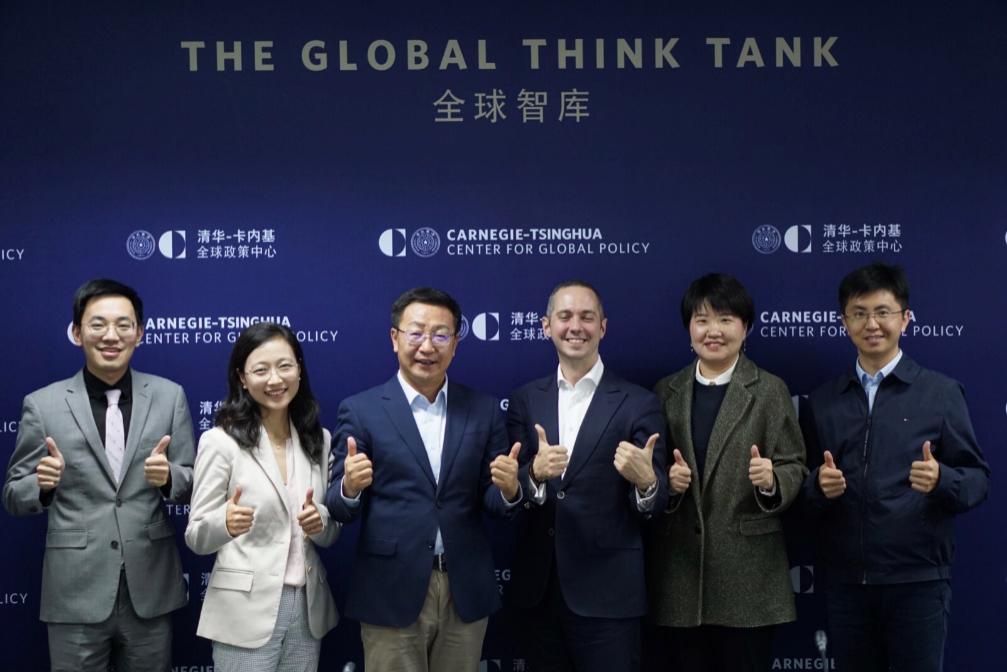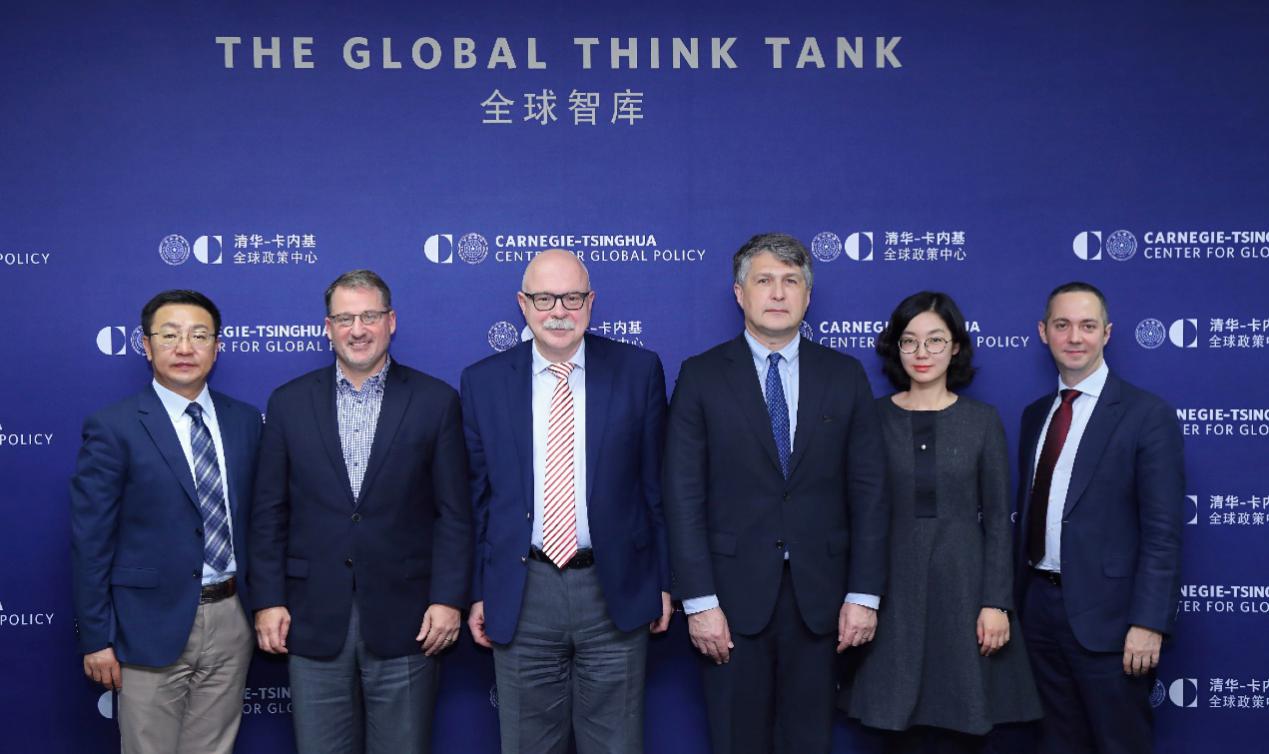On October 23rd, 2019, co-organized by the Center for Russian and Central Asian Studies at Fudan University, The Carnegie-Tsinghua Center for Global Policy, Carnegie Endowment for International Peace, the Inaugural Panels themed with “Responding to China’s Rise: Russia” of Carnegie Global Dialogue Series 2019-2020 were convened in Beijing. Paul Haenle, Maurice R. Greenberg Director’s Chair at the Carnegie–Tsinghua Center for Global Policy presided at the event. Feng Yujun, Director of the Center for Russian and Central Asian Studies and Vice Dean of the Institute of International Studies at Fudan University, Dmitri Trenin, Director of the Carnegie Moscow Center and Chair of Foreign and Security Policy Program, Alexander Gabuev, Senior Fellow and Chair of Russia in the Asia-Pacific Program at the Carnegie Moscow Center, Eugene Rumer, Senior Fellow and Director of Carnegie’s Russia and Eurasia Program and Shang Yue, Research Associate at the CICIR Institute of Eurasian Studies addressed keynote remarks. Academics present at the panels examined the implications of warming China-Russia ties for the Asia-Pacific and wider global community, pondered over and elaborated upon issues in the spheres of how Russia was responding to China’s rise, how closer Moscow-Beijing ties affected their respective relationships with the United States and how the United States would respond. In the ensuing workshop session for young scholars from both sides entitled "Status and Prospects for Sino-Russian Relations" on October 24th, 2019, Professor Feng Yujun, Director of the Center for Russian and Central Asian Studies and Vice Dean of the Institute of International Studies at Fudan University assumed the designated role of moderator. Alexander Gabuev, Director of the Carnegie Moscow Center and Chair of Foreign and Security Policy Program, Han Lu, Research Associate at the Department for European-Central Asian Studies affiliated to China Institute of International Studies, Associate Professor Liu Ying and Assistant Professor Zhang Jian at China Foreign Affairs University, Chen Yu, Assistant Research Fellow at the CICIR Institute of Eurasian Studies presented attendance at the session. Academic experts perceived that amid the profound changes in centuries, China-Russia relations entered a phase at the international and bilateral levels. Within the overall context, initiating endeavors entailed in-depth reflections on propositions with regard to the trends of bilateral relationship. Attendants drew out multi-dimensional perspectives on the follow-up correlated issues. What changes were thereby under way in the global context? Did the world landscape reflect the configuration of one superpower and multi-great powers or multipolarity, undergoing disorder or accelerated reconstruction? In the transformational process of the power balance, what implications would emerge on their respective mentality and mutual strategies? Had an “almost” alliance formed? How would the regional and international order be affected? Would there be relative returns on a mutually beneficial and win-win basis? How did both sides comprehend the relevant aspects and what implications would it bring forth on the prospects for China-Russia relationship? The academics present at the resoundingly grand event reached the consensus that China-Russia ties featuring an exemplary new type of international relations embraced an unprecedented historic opportunity, the young scholars from both sides should keep their original aspirations in mind and work in collaborative efforts to cope with the common challenges to further hail and attain greater headway with the all-round sustainable development momentum in China-Russia comprehensive strategic partnership of coordination for a new era. (Preceding English Paragraphs by Mao Xiaojun)
Inaugural Panels of Carnegie Global Dialogue Series 2019-2020 Co-sponsored by Center for Russian and Central Asian Studies, Fudan University and Carnegie Endowment for International Peace
发布时间:
2019-11-07
访问次数:
258

